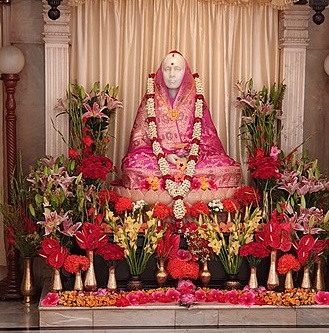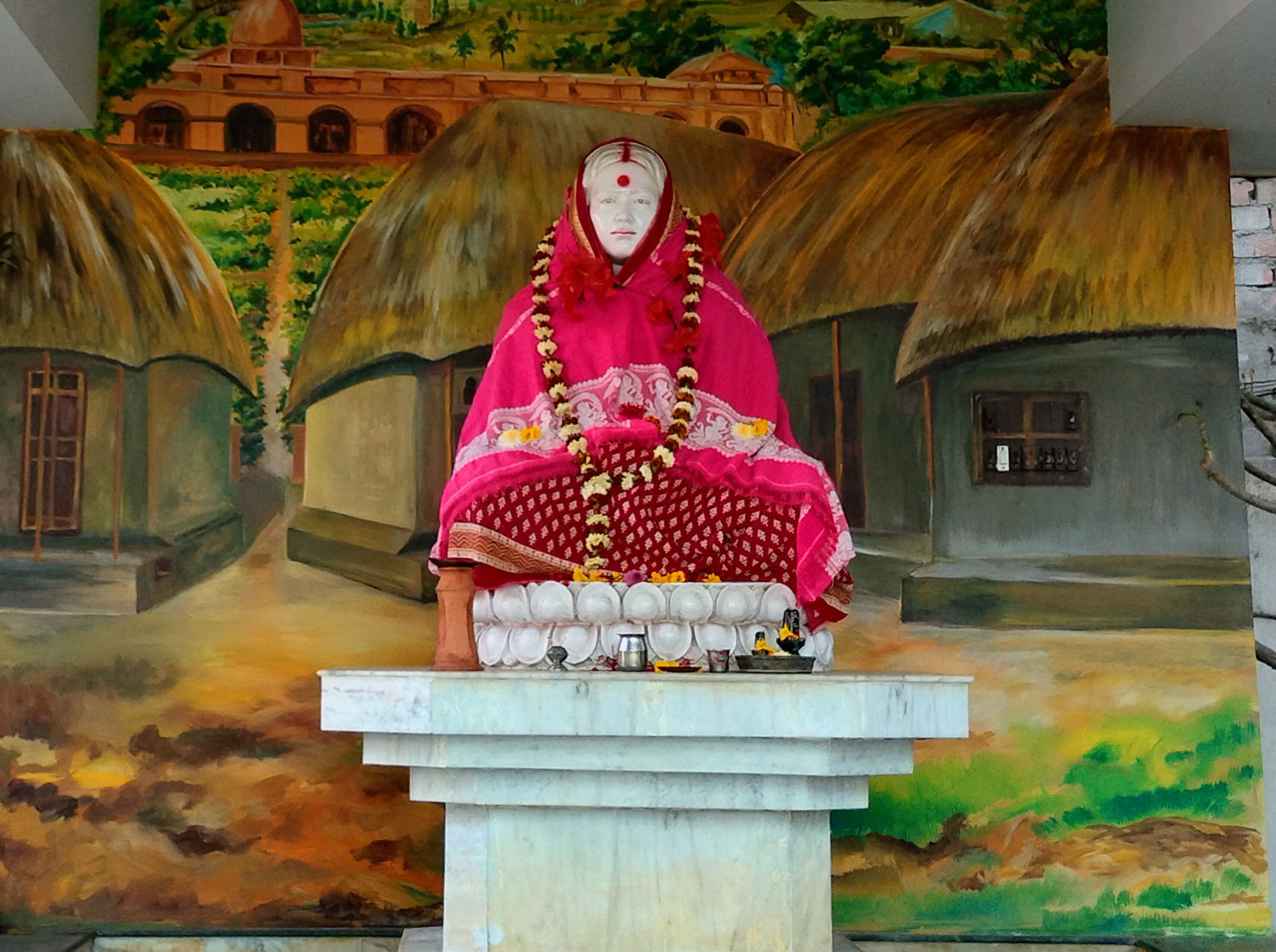
 Maa Sarada Devi (22 December 1853 – 21 July 1920) was born Kshemankari / Thakurmani / Saradamani Mukhopadhyay, was the wife and spiritual consort of Ramakrishna Paramahamsa, a nineteenth-century Hindu mystic. Sarada Devi is also reverentially addressed as the Holy Mother (Sri Sri Maa) by the followers of the Sri Ramakrishna monastic order. The Sri Sarada Math and Ramakrishna Sarada Mission situated at Dakshineshwar is based on the ideals and life of Sarada Devi. She played an important role in the growth of the Ramakrishna Movement.
Maa Sarada Devi (22 December 1853 – 21 July 1920) was born Kshemankari / Thakurmani / Saradamani Mukhopadhyay, was the wife and spiritual consort of Ramakrishna Paramahamsa, a nineteenth-century Hindu mystic. Sarada Devi is also reverentially addressed as the Holy Mother (Sri Sri Maa) by the followers of the Sri Ramakrishna monastic order. The Sri Sarada Math and Ramakrishna Sarada Mission situated at Dakshineshwar is based on the ideals and life of Sarada Devi. She played an important role in the growth of the Ramakrishna Movement.
Sarada Devi was born in Jayrambati, a village in present-day Bankura District in the state of West Bengal, India. Sarada lived the simple life of an Indian village girl. As a child, Sarada—then known as Saradamani—was fascinated by traditional Hindu folklore and narratives. As in the case of most girls of rural upbringing, she did not receive any formal education but learned to serve others as she helped her mother run a large household and looked after her younger brothers. During the terrible famine of 1864, Sarada worked ceaselessly as her family served food to hungry people. She was interested in the clay models of goddesses Kali and Lakshmi, which she worshiped regularly. She is said to have started meditating from her childhood, and traditional accounts recount her mystic visions and experiences. According to Sarada Devi, she used to see a bevy of eight girls of her age coming from an unknown place and escorting her in her chores during her childhood.
Sarada Devi was married to Ramakrishna in 1859 when she was only six years old and Ramakrishna was 23 years old, but remained with her family until she was 18, when she joined Ramakrishna at Dakshineswar Kali temple. According to her biographers, both lived "lives of unbroken continence, showing the ideals of a householder and of the monastic ways of life".
After Ramakrishna's death, Sarada Devi stayed most of the time either at Joyrambati or at the Udbodhan office, Calcutta. The disciples of Ramakrishna regarded her as their own mother, and after their guru's death looked to her for advice and encouragement. The followers of the Ramakrishna movement and a large section of devotees across the world worship Sarada Devi as an incarnation of the Adi Parashakti or the Divine Mother.
Sarada Devi did not write any books; her utterances and reminiscences have been recorded by her disciples including Swami Nikhilananda, Swami Tapasyananda. Though uneducated Sarada Devi's spiritual insight and utterances are highly regarded by scholars like Gayatri Chakravorty Spivak, who writes, "We have bits and pieces of her exquisite remarks as testimony."
